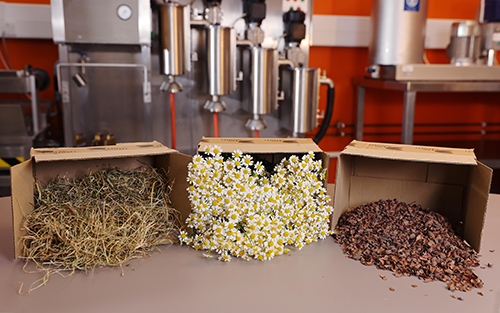DS Smith has reported that it is trialling new and innovative materials for its paper and packaging making process which includes straw, daisies, hemp, cocoa shells and seaweed.
The company is currently trialling a range of alternative fibres as part of its £100m R&D and Innovation plan to accelerate its work in the Circular Economy. The programme will look at the fibre potential and plastic replacement capabilities of a number of materials in order to diversify the range of sources it uses for packaging.
DS Smith is also exploring the use of annual plants such as daisies and agricultural wastes for their fibre properties and potential paper performance. The company has also undertaken industry-first trials exploring how seaweed may be used as a raw material to design out problem plastics from carton, paper wrap and cardboard tray packaging.
Now, the DS Smith Innovation Team is experimenting with cocoa shells for carton board in chocolate packaging and is looking at other materials with a good environmental profile. For example, agricultural waste in the form of straw, and annual plants like hemp or miscanthus, which in some cases might require significantly less energy and water to produce than some traditional paper-making materials.
Thomas Ferge, Paper and Board Development Director, DS Smith said, “With the strain on the planet more evident than ever, our research has the potential to lessen pressure on forests and protect the planet’s natural resources. As well as looking at how we optimise the standard recycled paper fibres that we already use, we’re excited by the prospect of how other resources such as miscanthus, hemp, agricultural wastes and seaweed could be used in the next generation of packaging solutions. This is all part of our goal to make the most of every single fibre we use by 2030.”
DS Smith has been trialling such novel materials with research partners. In an innovative pilot programme, DS Smith and The Research Institute of Sweden (RISE) explored how the properties of straw and seaweed could potentially work as a packaging product in comparison to more traditional materials including recycled hardwood and softwood.




